Does Moon Knight have DID or dissociative identity disorder? Moon Knight, the latest superhero to arrive in the Marvel Cinematic Universe, is making a lot of waves, thanks to the interesting portrayal of the character, ancient Egyptian mythology, and mental illness.
Before we delve into the psychology behind Moon Knight’s mental illness, kindly note that the following may include some mild spoilers for the show. Now that’s out of the way, let’s take a closer look at Moon Knight’s mental disorder.
Does Moon Knight have DID?

In Marvel’s Moon Knight, actor Oscar Isaac plays the character Marc Spector (Moon Knight), a mercenary with dissociative identity disorder (DID). Marc has multiple personalities or alters, most prominent being Steven Grant (Mr. Knight) & Jake Lockley. Marc and his alters are involved in a mystery surrounding ancient Egyptian gods, like Khonsu, the Egyptian god of the Moon.
Although the show is still about a superhero trying to save the world, the show, and the story primarily revolve around Marc’s struggle with a dissociative identity disorder. The interesting thing is, that Moon Knight has been struggling with DID for over 20 years in Marvel comics lore.
Related reading: What Is Splitting? Why We Love Jekyll And Hate Hyde
What is dissociative identity disorder (DID)?
Dissociative identity disorder (DID) is a psychological condition where the sufferer has two or more personalities or multiple separate ‘selves’ in a single body. “Dissociative identity disorder (DID) is a rare disorder associated with severe behavioral health symptoms,” explains a 2021 study. Many myths surround this rare & complex mental illness thanks to inaccurate media representation in movies like Fight Club & Shutter Island.
But does Moon Knight have DID? It seems so. DID involves distinct ‘fragmentation’ of a person’s awareness, identity, memory & perception into different personalities. Many people commonly identify this condition as Multiple Personality Disorder (MPD) or Split Personality Disorder.
Related reading: Dissociative Identity Disorder
How DID affects someone
The sufferer, known as a ‘host’, develops two or more alternate personalities or identities, known as ‘alters’. These ‘alters’ are separate from the main personality and have unique identities, mannerisms & attitudes. The ‘host’ may lack ownership over the ‘alters’.
The ‘host’ may or may not be aware of the presence of any ‘alters’ or that they are suffering from DID. On the other hand, the ‘host’ may be aware of the condition but have no knowledge about their ‘alters’ or what they do and how they behave.
The ‘alters’ are autonomous of one another and can function independently. On the contrary, the ‘alters’ may be fully aware of each other and in direct conflict. When the ‘host’ or an ‘alter’ is not in charge that identity can be totally unaware of the latest occurrences in the person’s life.
How DID is portrayed in Marvel’s Moon Knight
Does Moon Knight have DID? Yes, and this is how Moon Knight’s mental disorder is explored in the MCU series. In the show, currently streaming on Disney+, Moon Knight’s multiple personalities have depicted some common symptoms of dissociative identity disorder, such as –
- Having two or more personalities or alters
- Memory loss
- Feeling detached from self
- Periods of dissociation
- Experiencing distress in work, relationships & personal life
- A distorted sense of people and situations
Related reading: What Is Dissociation And How It Is Related To Trauma
Not only Marvel’s Moon Knight explored how this mental condition can affect the sufferer’s relationships and life, it also focused on how the different alters are not necessarily aware or co-conscious of each other. However, the show also showed how the different personalities can be aware of the other’s existence and can be helpful in some ways.
The Disney+ show also accurately depicts how different alters or identities have different personalities, backgrounds, abilities, and skills. While Steven Grant is a shy, timid man doing an ordinary job and living a normal life, Marc Spector is a highly confident and courageous mercenary with impressive combat skills who is able to survive multiple dangerous situations.
Things you should know about DID
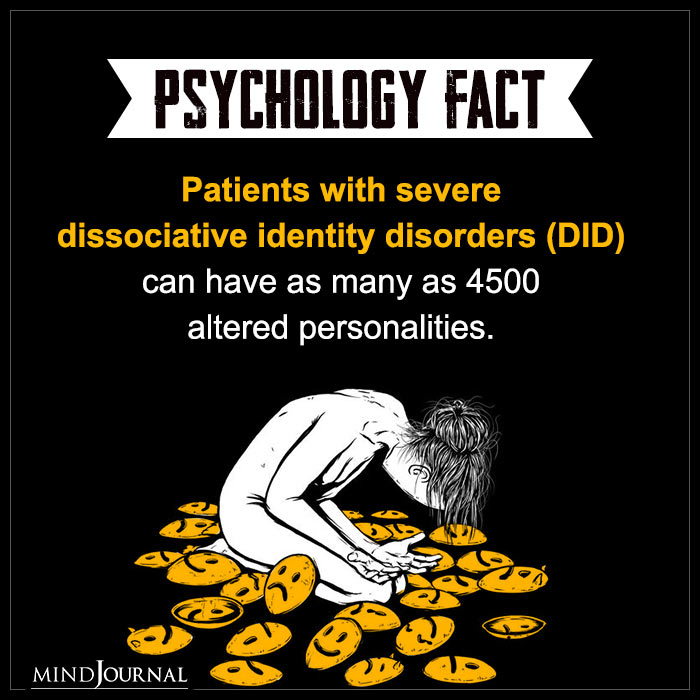
Mental disorders are a serious topic and people who struggle with mental illnesses need to be treated with respect and care. Although Marvel’s Moon Knight put in a lot of effort to depict dissociative identity disorder (DID) as practically as possible, there are still several things that we need to be aware of about this complex psychological condition.
Here are a few things you need to know about DID –
- Children can suffer from DID as it can develop at any age.
- Women are diagnosed with DID more than men.
- The ‘alters’ do not typically ‘merge’ together spontaneously.
- Most sufferers have a history of trauma or abuse in childhood.
- Sufferers can have around 2 to 10 alters on an average.
- The highest number of ‘alters’ recorded in a patient was 100.
- Misdiagnosis is common as symptoms are similar to other mental conditions.
What are the symptoms of DID?
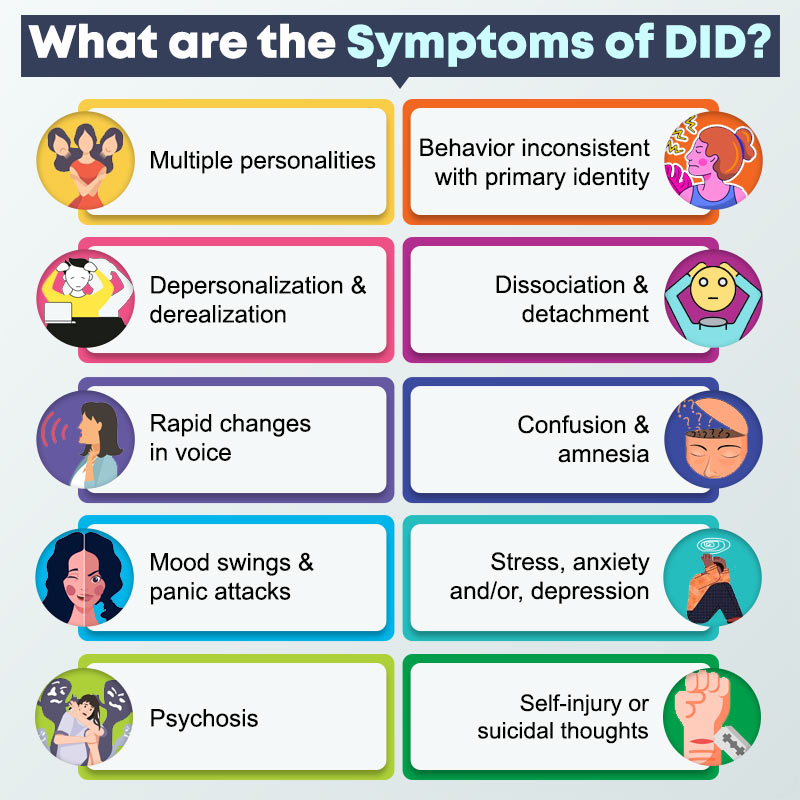
If you are still wondering – does Moon Knight have DID? – then you need to know about the symptoms of this complex, posttraumatic, developmental disorder. Apart from the symptoms portrayed by moon knight’s multiple personalities, in reality, the condition involves a number of different signs and symptoms, such as –
- Multiple personalities
- Behavior inconsistent with the primary identity
- Depersonalization & derealization
- Dissociation & detachment
- Rapid changes in voice
- Confusion & amnesia
- Mood swings & panic attacks
- Stress, anxiety, and/or, depression
- Psychosis
- Self-injury or suicidal thoughts
Related reading: What Is Dissociative Identity Disorder (DID): Symptoms and Treatment
What causes DID?
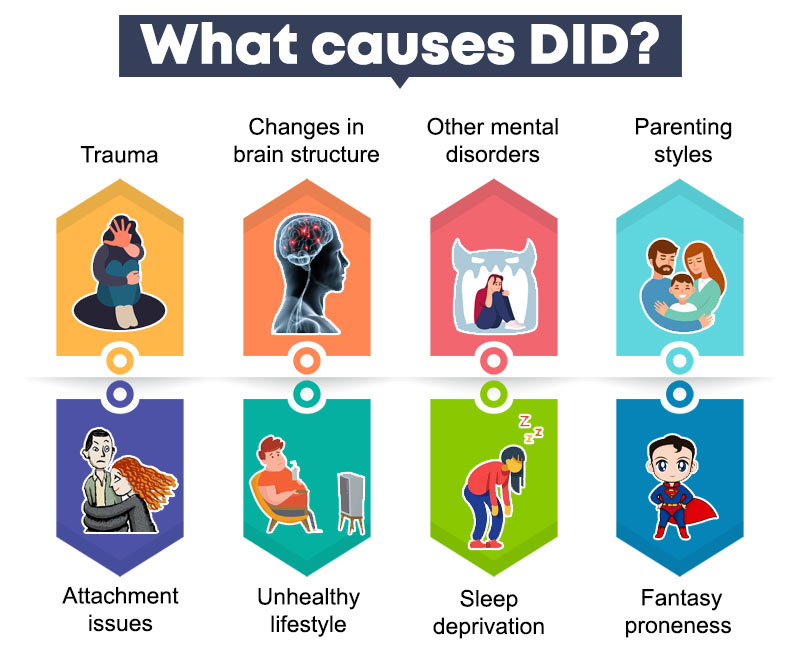
Although the exact cause for the onset of dissociative identity disorder is not clearly depicted in Marvel’s Moon Knight (after all, it is a superhero show), there are several factors that influence the development of DID. Some of these risk factors and causes include –
- Trauma
- Changes in brain structure
- Other mental disorders
- Parenting styles
- Attachment issues
- Unhealthy lifestyle
- Sleep deprivation
- Fantasy proneness
Recent research explains that “Alternate identities result from the inability of many traumatized children to develop a unified sense of self that is maintained across various behavioral states, particularly if the traumatic exposure first occurs before the age of 5.”
Myths about DID
Sadly, as most of us are unaware about the complexities of such mental disorders, we often believe what we see in movies and shows and behave accordingly with people struggling with such conditions in real life.
As we have already found the answer to our question “does Moon Knight have DID?”, let us explore some of the myths that are associated with Moon Knight’s dissociative identity disorder in real life –
Myth #1: DID is not a real condition.
Reality: Research shows that about 2% of the global population suffer from dissociative disorders.
Myth #2: A sufferer can switch between ‘alters’ on command.
Reality: The sufferer can’t shift between the alternate personalities as they want.
Related reading: What Is Good Mental Health? 11 Signs
Myth #3: People with DID behave differently based on their ‘alters’.
Reality: Although the ‘alters’ may have distinct mannerisms, alters fail to merge into a single identity due to trauma.
Myth #4: People suffering from DID are aggressive & ‘crazy’.
Reality: Sufferers don’t tend to be more aggressive than others. They are not ‘crazy’ as it is a fear-based defense mechanism.
Can DID be cured?
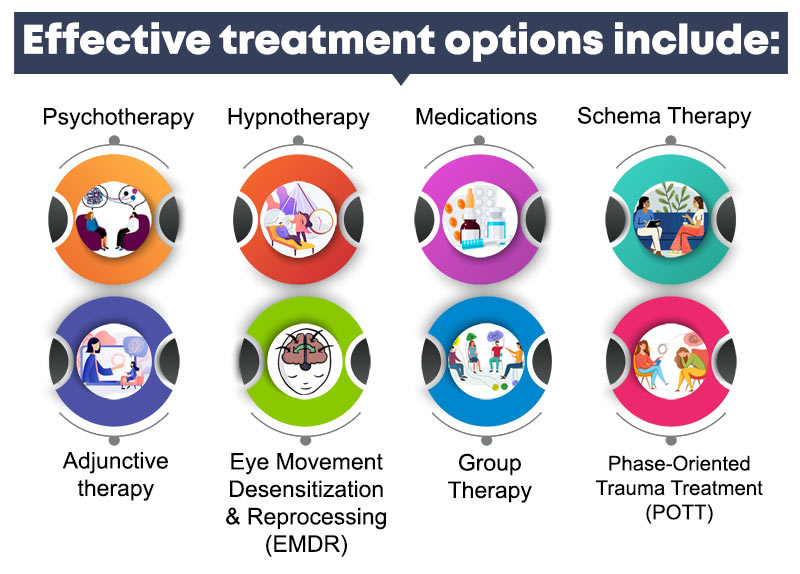
Moon Knight’s personality disorder may help to add enthralling drama to the plot of the MCU superhero series, in reality, this disorder can significantly impair one’s ability to live a healthy and happy life. This is why it is crucial to consult a mental health professional and seek treatment, if you or someone you know is suffering from DID.
Although there is no specific cure for DID, it can be managed effectively with dedicated treatment. Treatment is not focused on eliminating ‘alters’. The goal of treatment is to help the patient live harmoniously with the ‘host’ and all the ‘alters’.
Effective treatment options include:
- Psychotherapy
- Hypnotherapy
- Adjunctive therapy
- Eye Movement Desensitization And Reprocessing (EMDR)
- Schema Therapy
- Phase-Oriented Trauma Treatment (POTT)
- Group Therapy
- Medications
There are no specific medications for the treatment of DID, but a doctor may prescribe certain medications to manage the symptoms associated with DID. Some common medications may include antipsychotic medications, anti-anxiety drugs and antidepressants.
Related reading: 10 Signs Your Mental Health Is Finally Improving
‘Mental Health Knight’
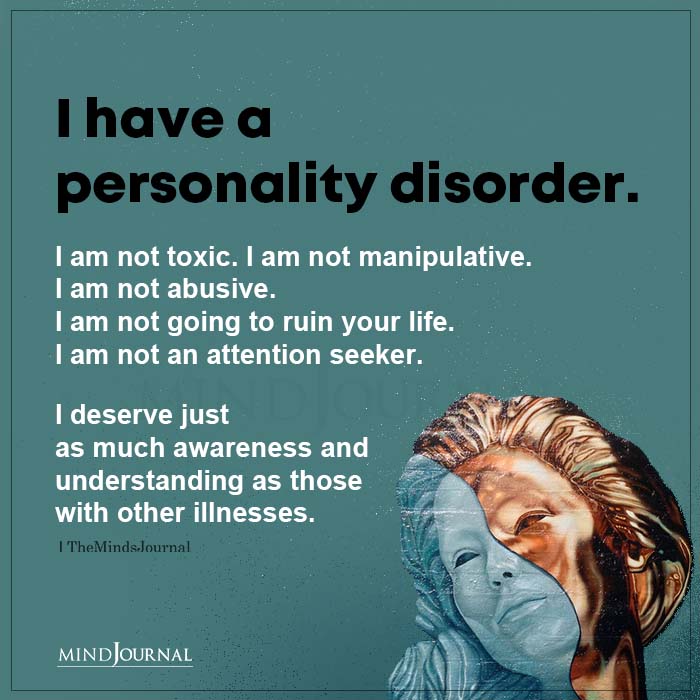
Whether Marvel’s Moon Knight portrays dissociative identity disorder accurately or not is up for debate, but what the show does right is spread awareness about a complex mental disorder that numerous people struggle with around the world. Moon Knight carefully explores what a person with DID may experience, the common symptoms, and how it affects their life.
However, it is important that we gain proper knowledge about the condition, avoid myths and misconceptions and remove the stigmatization surrounding such mental illness.
If you or a loved one is suffering from DID, seek help from a mental health professional as treatment can help.
Related reading: Life Lessons From Superheroes That Will Make You A Hero In Real Life
Frequently Asked Questions (FAQs):
What is Moon Knight’s true identity?
In the comics, Moon Knight’s alter ego is Marc Spector, who suffers from dissociative identity disorder (DID) and has multiple personalities, like Steven Grant & Jake Lockley.
What does Marc Spector suffer from?
Marc Spector is a complicated man who suffers from a complex mental disorder known as Dissociative Identity Disorder (DID) or Multiple Personality Disorder (MPD) due to childhood trauma.
What are some dissociative disorders?
The most common dissociative disorders include Dissociative identity disorder, Dissociative amnesia, Depersonalization/Derealization Disorder, Other Specified Dissociative Disorder, and Unspecified Dissociative Disorder.
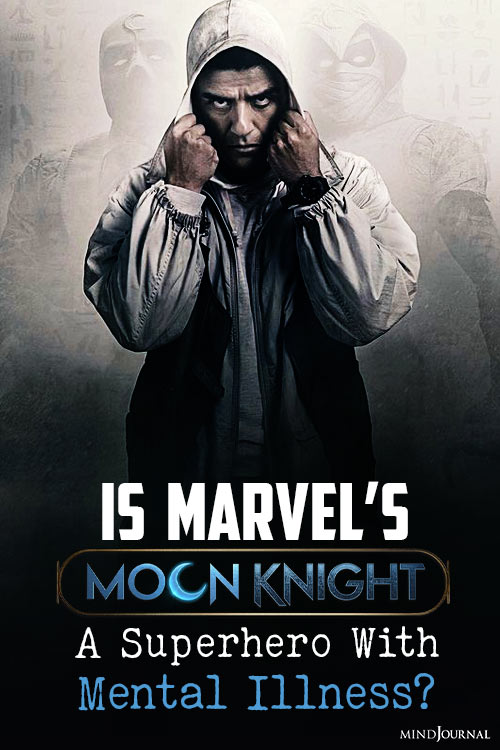
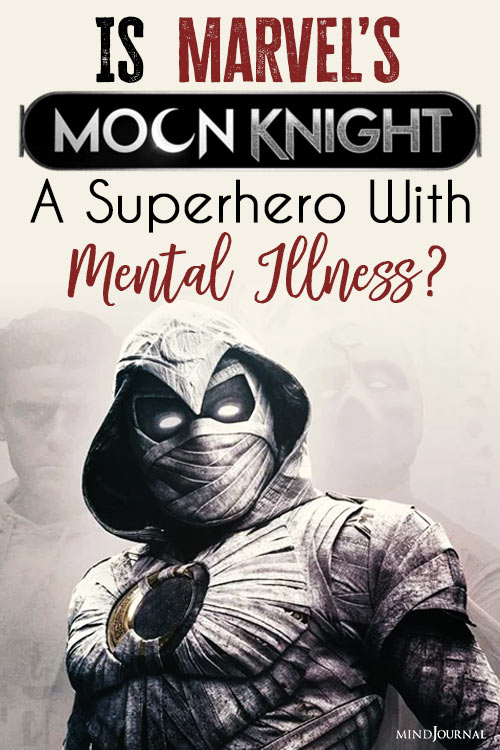
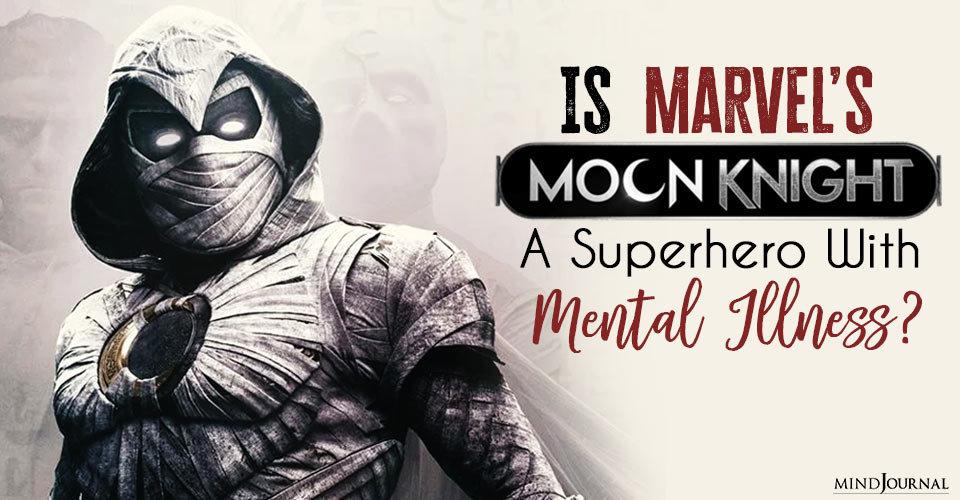







Leave a Reply
You must be logged in to post a comment.